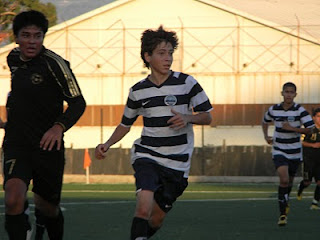13 Healthy Habits to Improve Your Life
Disregard them, and you may well be taking a big gamble with your mental and emotional well-being.
Healthy Habit No. 4: Make Social Connections
Volunteer. Go to church. Join a club. Whatever you do, do it with people. Communal activities are good for your physical and mental health, according to a study published in the March/April 2004 issue of the American Journal of Health Behavior.
It makes sense, says C. David Jenkins, PhD, author of Building Better Health: A Handbook of Behavioral Change. He says social ties have many benefits, including:
• Providing information. You may think for instance your frequent nosebleeds, coughing, and sneezing episodes are trivial, but when a close friend or relative hears of it, he or she may encourage you to go to a doctor. If the symptoms turn out to be a serious condition, the social tie could have saved your life.
• Instrumental help. Friends and family can provide physical support in time of need. They may help with cooking, cleaning, running errands, doing grocery shopping, and driving to the doctor's office.
• Emotional support. Sharing a problem with a trusted person can help alleviate an internal burden. "It's a load off your chest," says Jenkins.
• Offering a sense of belonging. This feeling not only helps reinforce a person's identity, it also assists in preventing and overcoming depression and anxiety.
Community ties also help improve mental functioning, says Fleming. Group activities can help keep the mind active and maintain desirable levels of serotonin -- the brain chemical associated with mood. "Lack of social interaction will [decrease] serotonin levels," says Fleming.
Healthy Habit No. 5: Exercise for Better Health
We already know that physical activity has a bounty of benefits, which makes it so puzzling why so many people just don't do it. According to the CDC, more than 60% of Americans do not get regular exercise.
In case you needed an incentive, here is a review of the advantages of exercise, per the National Cancer Institute:
• Helps control weight
• Maintains healthy bones, muscles, and joints
• Reduces risk of developing high blood pressure and diabetes
• Promotes psychological well-being
• Reduces risk of death from heart disease
• Reduces risk of premature death
Studies have also shown a link between exercise and a reduced risk of certain cancers.
Besides its long-term effects, moving your body has immediate benefits, says Cedric Bryant, chief exercise physiologist for the American Council on Exercise. The short-term results of exercise include helping people to think and move better, manage stress, improve mood, and get an energy boost.
The excuses that people often give to not exercise are the precise reasons to exercise, says Bryant. People who say they are too tired or don't have time to workout don't realize that exercise gives people more energy and allows them to be more productive with the rest of their time.
to be continue...

Tip of the week,
Last week, the fifth grade class visited the “Multicentro Deportivo” on a field trip in order to climb walls. Students had the option to climb (5) different routes and all of them enjoyed their experience, challenging themselves in each of the routes.


P.E. Class
PK
With the pre-kinder kids, we are going to develop motor skills through the manipulation of various objects, such as hula hoops and different sizes of balls.
Kinder
The students are going to enjoy different types of hula hoops games, such as monkey in the middle, to continue developing their motor skills.
1st
This week, the students will perform activities to develop eye/hand coordination.
2nd
Students will strengthen eye/hand coordination through ball activities with different surfaces, such as paddles.
3rd
Through recreational activities, I will introduce the students to paddle games, which is a pre-sports activity for the game of tennis.
4th
The students are going to develop throwing and catching activities to introduce them to the game of tennis through paddles, which is a tennis pre-sport activity.
5th
Students will practice pre-sports activities with paddles to introduce the game of tennis.






